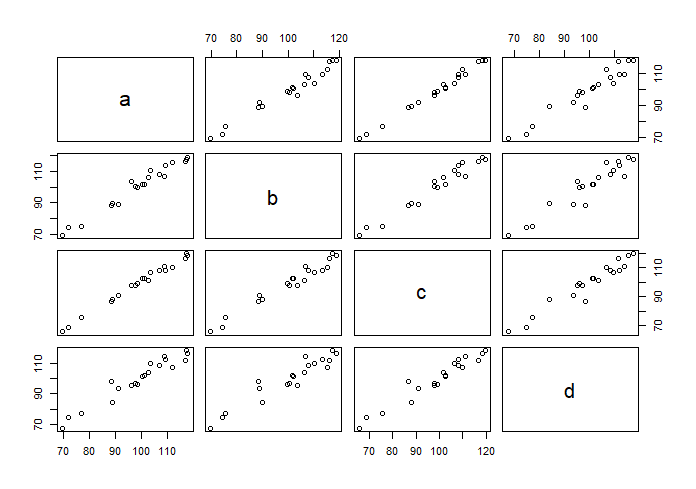Your goals are not sufficiently clear to be to give
a complete answer. First, maybe you mean that data
in A-D are 'blocked' (not 'paired'). That might mean
that there are $n$ subjects, each producing scores A-D.
Then you might want to begin by looking at scores A-D
to see how they may be correlated. You can easily look
at the correlation between A & B, between A & C, and so on, as illustrated in R below:
set.seed(2020)
a = rnorm(20, 100, 10)
b = a + rnorm(20,0,3)
c = a + rnorm(20,0,3)
d = a + rnorm(20,0,3)
MAT = cbind(a,b,c,d)
round(cor(MAT),3)
a b c d
a 1.000 0.984 0.996 0.965
b 0.984 1.000 0.982 0.950
c 0.996 0.982 1.000 0.968
d 0.965 0.950 0.968 1.000
pairs(MAT)

Similarly, for W-Z.
It is not clear what kinds of comparisons you might
want to make between A through D and W through Z. You might look at
differences A-W, B-X, and so on. Or you might get compare
a summary score of E of A,B,C,D and with a summary
score V of W,X,Y,Z.
Such paired comparisons could
be made with a paired t test or paired Wilcoxon (signed-rank) test, depending on the nature of the data.
Also, there are multi-level ANOVA designs that could take a more
detailed look at A through D compared with W through Z.
Please revise your question, if you would like more detailed
guidance toward your main objectives, so some of us can
see what you have in mind.

